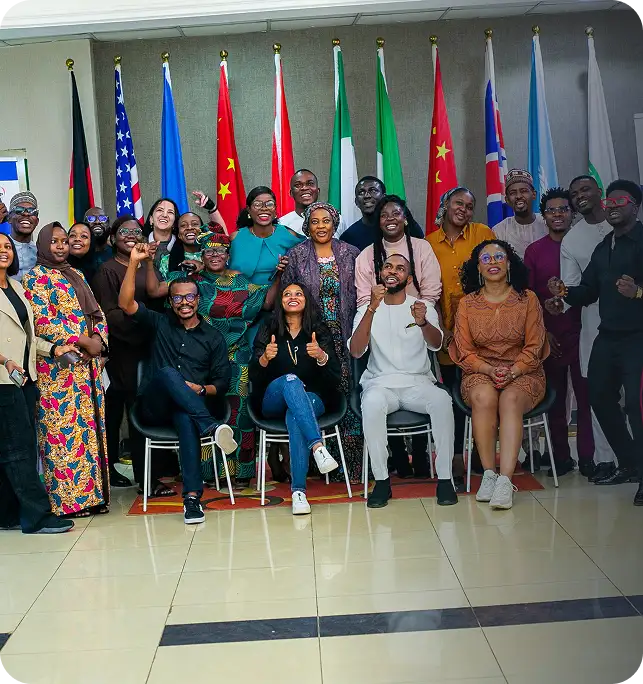
About the NYFF
More than 70 percent of Nigeria’s population is made up of young people, with estimations of continuous growth in the next few decades.
Given this significant number, it is evident that the future growth of Nigeria is linked to having an educated, skilled, healthy, and politically active youthful population that is involved in the development of long-term policy strategies.
The participation of Nigerian youth in leadership and politics has evolved overtime. Coming from a legacy of active student unionism (1980s), where universities served as spaces for intellectual debates and youth expression, to a period of youth organizing aided by new media (2010-present), the Nigerian youth ecosystem has experienced a reawakening of some sorts.
The #NotTooYoungToRun campaign (2016- 2018) and the noticeable increase in youth agitation and awareness of socio-economic and political indices in Nigeria are symbolic representations of the increasing leadership capabilities of young Nigerians.
The participation of Nigerian youth in leadership and politics has evolved overtime. Coming from a legacy of active student unionism (1980s), where universities served as spaces for intellectual debates and youth expression, to a period of youth organizing aided by new media (2010-present), the Nigerian youth ecosystem has experienced a reawakening of some sorts.
The #NotTooYoungToRun campaign (2016- 2018) and the noticeable increase in youth agitation and awareness of socio-economic and political indices in Nigeria are symbolic representations of the increasing leadership capabilities of young Nigerians.
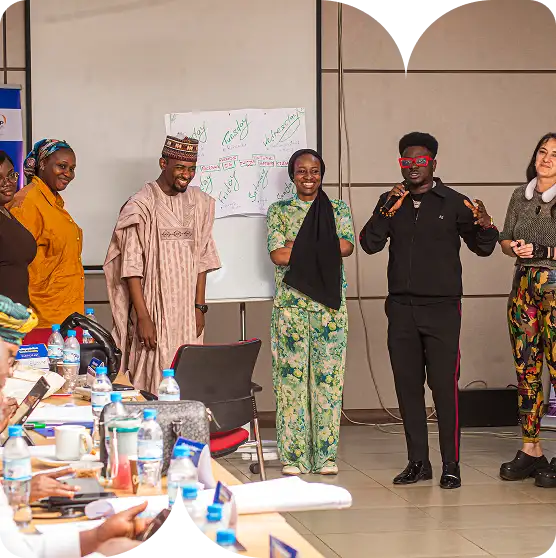
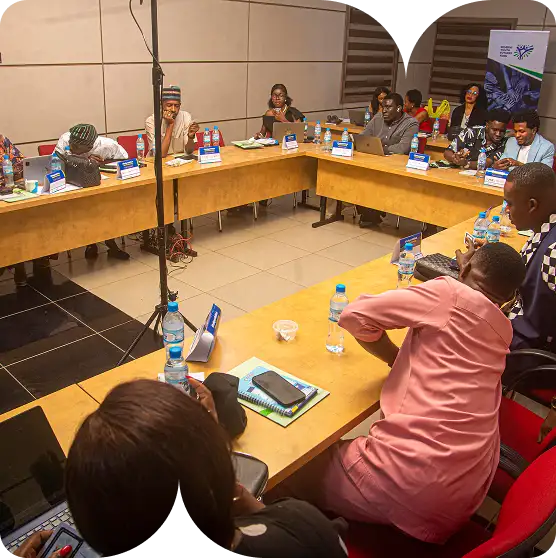
Given a myriad of social challenges and policy failures that young Nigerians contend with, they have become increasingly poised to lead powerful organizations, institutions and groups, having built capacity from leading change at a social level.
The African Leadership Institute report, “An Abundance of Young African Leaders but No Seat at the Table,” points out that Africa does not suffer a lack of young leaders However, many young Africans lack representation in the corridors of power. According to the report, about 700,000 young Africans have already been exposed to a level of selective leadership initiative, implying that the challenge is in harnessing the innovation, creativity and potential of these young leaders.
As witnessed in recent youth agitations and protests, it is evident that young Nigerians are already exploring alternative leadership and funding models aided by digital technology.
The African Leadership Institute report, “An Abundance of Young African Leaders but No Seat at the Table,” points out that Africa does not suffer a lack of young leaders However, many young Africans lack representation in the corridors of power. According to the report, about 700,000 young Africans have already been exposed to a level of selective leadership initiative, implying that the challenge is in harnessing the innovation, creativity and potential of these young leaders.
As witnessed in recent youth agitations and protests, it is evident that young Nigerians are already exploring alternative leadership and funding models aided by digital technology.
However, some of these agitations have made evident some leadership, sustainability and organizational gaps within the Nigerian youth ecosystem.
Noticeable among them are weak negotiation and consensus-building methods, unclear exit strategy, inability to identify intergenerational allies, and a limited capacity to facilitate long-term engagement with existing governance or political structures. In addition, efforts by stakeholders in the Nigerian youth ecosystem are still compromised by a preference to work in silos, leading to a duplication of efforts and unsustainable results.
Consequently, LEAP Africa in partnership with MacArthur Foundation, Ford Foundation and Luminate Group established the Nigeria Youth Futures fund (NYFF) to provide targeted capacity building, youth ecosystem building and financial support to burgeoning youth-led movements in Nigeria, in order to sustain their work locally and facilitate opportunities for learning.
The NYFF Project, initiated in 2021, is a five-year initiative dedicated to nurturing youth leadership and activism in Nigeria by fostering outcomes-driven policy engagements and inclusive resourcing for medium and long-term national development. The NYFF embodies the collective determination to invest in the potential of Nigerian youth. By facilitating policy engagements and providing a platform for their voices and ideas to thrive, the NYFF continues to pave the way for a brighter and more inclusive Nigeria.
Consequently, LEAP Africa in partnership with MacArthur Foundation, Ford Foundation and Luminate Group established the Nigeria Youth Futures fund (NYFF) to provide targeted capacity building, youth ecosystem building and financial support to burgeoning youth-led movements in Nigeria, in order to sustain their work locally and facilitate opportunities for learning.
The NYFF Project, initiated in 2021, is a five-year initiative dedicated to nurturing youth leadership and activism in Nigeria by fostering outcomes-driven policy engagements and inclusive resourcing for medium and long-term national development. The NYFF embodies the collective determination to invest in the potential of Nigerian youth. By facilitating policy engagements and providing a platform for their voices and ideas to thrive, the NYFF continues to pave the way for a brighter and more inclusive Nigeria.
NYFF Objectives
Objective 1
Equip young people to re-imagine, co-create, frame, and engage in national and regional policy development to drive evidence-based advocacy.
Objective 2
Empower and support youth activists/organizations by building their capacity and providing small grants to enhance their development, effectiveness, and growth by leveraging ICT tools to contribute to social change.
Objective 3
Engage young people through online and media platforms to foster collaboration, learning, and contribution to reimagining the Nigeria of the future.
Our Advisory Committee Members
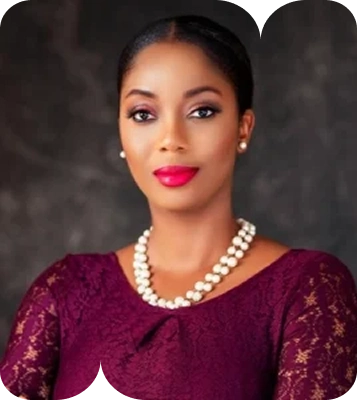
Chinenye Uwanaka
Managing Partner, The Firma Advisory

Femi Taiwo
Founding Partner FIT Africa
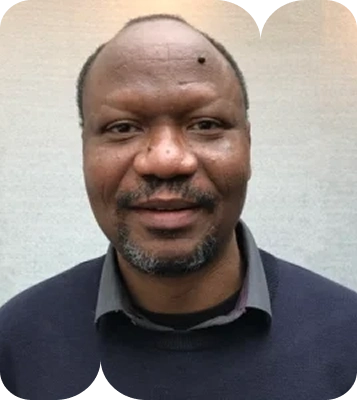
Kole Shettima
Co-director, On Nigeria; Director, Nigeria Office, Macarthur Foundation
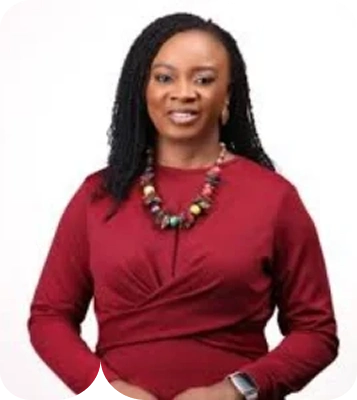
Toyin Akininyi
Vice President, Africa, Luminate

Kehinde Ayeni
Executive Director, LEAP Africa
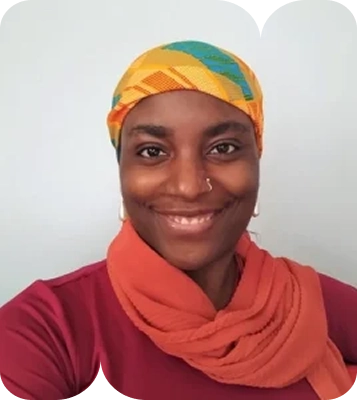
Zainab Haruna
Programme Director, Step Up Nigeria
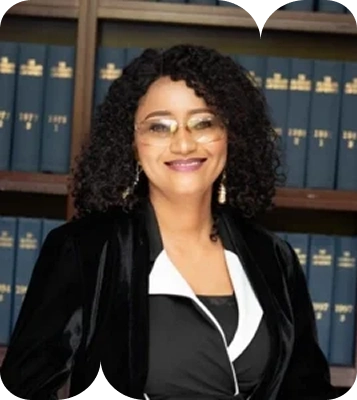
Mary Omoyeme Musa
Secretary-General, Network of Women with Disabilities
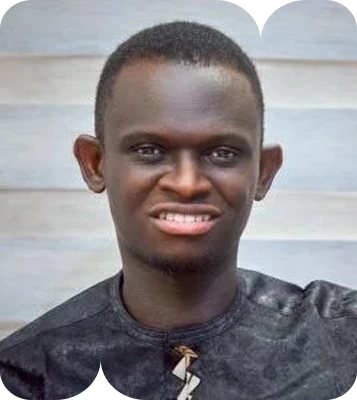
Ebenezar Wikina
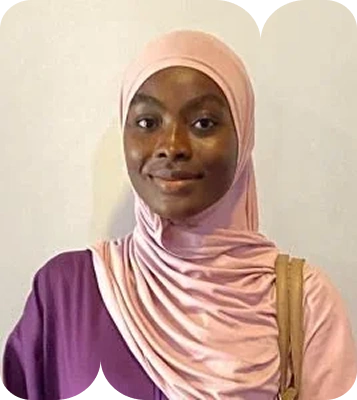
Zainab Ahmed Yero
Project Secretariat
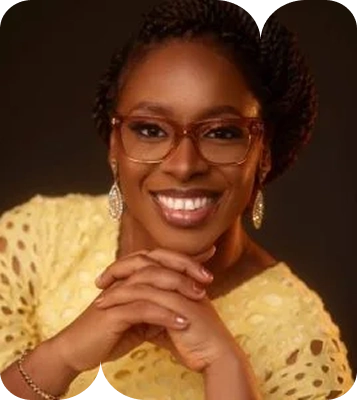
Onyeche Elisabeth Agbiti-Douglas
Project Director, NYFF
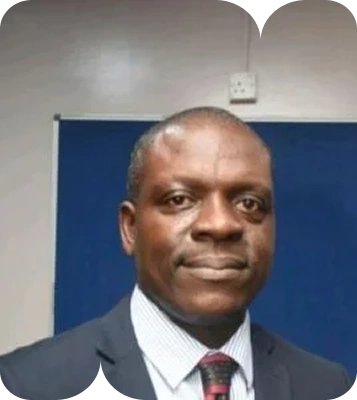
Olushola Ojajuni
MERL Coordinator
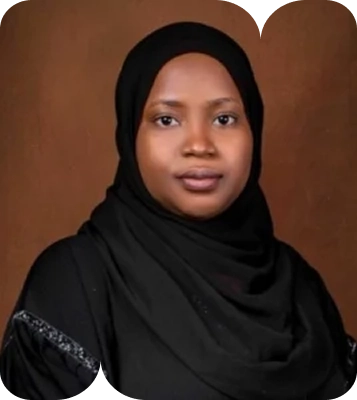
Maimuna Muhammad Sani
Community and Youth Engagement Coordinator 1

Richard Chidiebere
MERL Officer
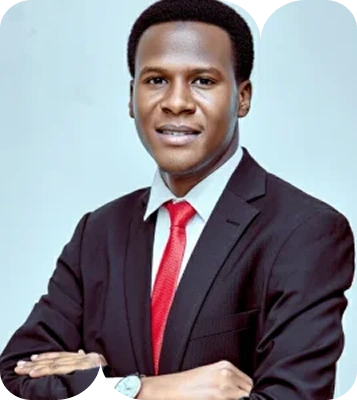
Nasir Jibril Muaz
Communications, PR and Community Engagement Officer
